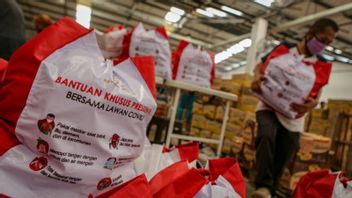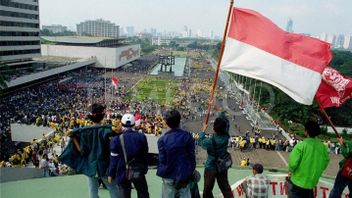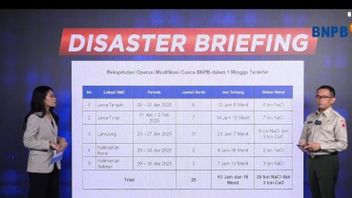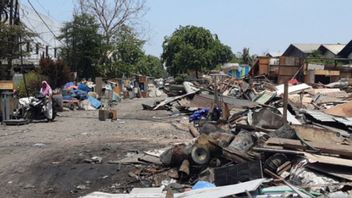
JAKARTA Starting in 2025, the Indonesian Manufacturing Purchasing Managers' Index (PMI) again recorded a solid performance with an expansion at the level of 51.9 or an increase when compared to the previous month which was at the level of 51.2 and was the highest achievement since June 2024.
Head of the Fiscal Policy Agency, Ministry of Finance Febrio Kacaribu said this increase was driven by increased production and new demand from both the domestic market and exports.
"The increase in manufacturing PMI is a positive signal starting in 2025. This momentum will continue to be maintained, the Government is committed to maintaining the performance of the real sector and supporting pro-industrial growth policies," he said in his statement, Monday, February 3.
Febrio said the development of the manufacturing sector in January 2025 reflects the consistent expansion of consumption activity and the business world since the end of last year.
As for December 2024, the real sales index (IPR) increased 1.0 percent on an annual basis, or higher than in November 2024 0.9 percent.
Meanwhile, the consumer confidence index (IKK) released by Bank Indonesia is expansive at 127.7 or higher than in November 2024 is at 125.9.
Meanwhile, from the activities of the business world, the electricity sales of the expansionary industry were 4.3 percent (yoy), a significant increase from the growth of 1.5 percent in the previous month.
Febrio conveyed that with this development, the optimism of manufacturing industry players towards the 2025 prospect is getting stronger.
"The increase in demand encourages companies to increase their workforce and increase the stock of raw materials and finished goods in order to anticipate a surge in sales," he said.
Meanwhile, at the global level, several major Indonesian trading partners such as India (58.0), the US (50.1) and China (50.1) also showed manufacturing expansion. However, most ASEAN countries are still experiencing contractions, such as Thailand (49.6), Vietnam (48.9), and Malaysia (48.7).
Meanwhile, inflation in January 2025 was recorded to have decreased to 0.76 percent (yoy) and this was lower than in December 2024 1.57 percent. Meanwhile, on a month-to-month basis, there was a deflation of 0.76 percent (mtm), mainly driven by the electricity tariff discount program amid the increase in the prices of several food commodities due to the rainy season.
The 50 percent discount electricity tariff program policy for most users is part of the Government's program to maintain people's purchasing power and encourage economic activity. This policy has a positive impact on the economy so that people's purchasing power is maintained," continued Febrio.
By component, the trend of strengthening core inflation continues to reach 2.36 percent (yoy), reflecting growing demand. Several groups are increasing, among others, clothing and footwear, education, household appliances, personal care, and other services.
Febrio said the rainy season which was still ongoing also pushed up several food prices, causing an increase in volatile price inflation to reach 3.07 percent (yoy).
Meanwhile, several food commodities that experienced price increases include poultry products, cayenne pepper, and fresh fish.
On the other hand, the price component regulated by the Government was recorded to have deflation of 6.41 percent driven by the electricity tariff discount program.
According to him, the normalization of transportation rates after the Nataru holiday, such as rail and air transportation rates, also has an impact on the decline in inflation of passenger transport service groups.
Febrio said the government continues to strive to keep inflation under control to support the maintenance of people's purchasing power, especially ensuring food access.
SEE ALSO:
According to Febrio, the government is committed to maintaining inflation at the target interval with support for central and regional coordination through TPIP and TPID.
"The government has consistently implemented policies to maintain the control of food inflation, including increasing production and strengthening food reserves to achieve food security. In preparing for the National Religious Holidays (HBKN) of Ramadan and Eid Al-Fitr, the Government will continue to mitigate the risk of turmoil that may occur," closed Febrio.
The English, Chinese, Japanese, Arabic, and French versions are automatically generated by the AI. So there may still be inaccuracies in translating, please always see Indonesian as our main language. (system supported by DigitalSiber.id)














